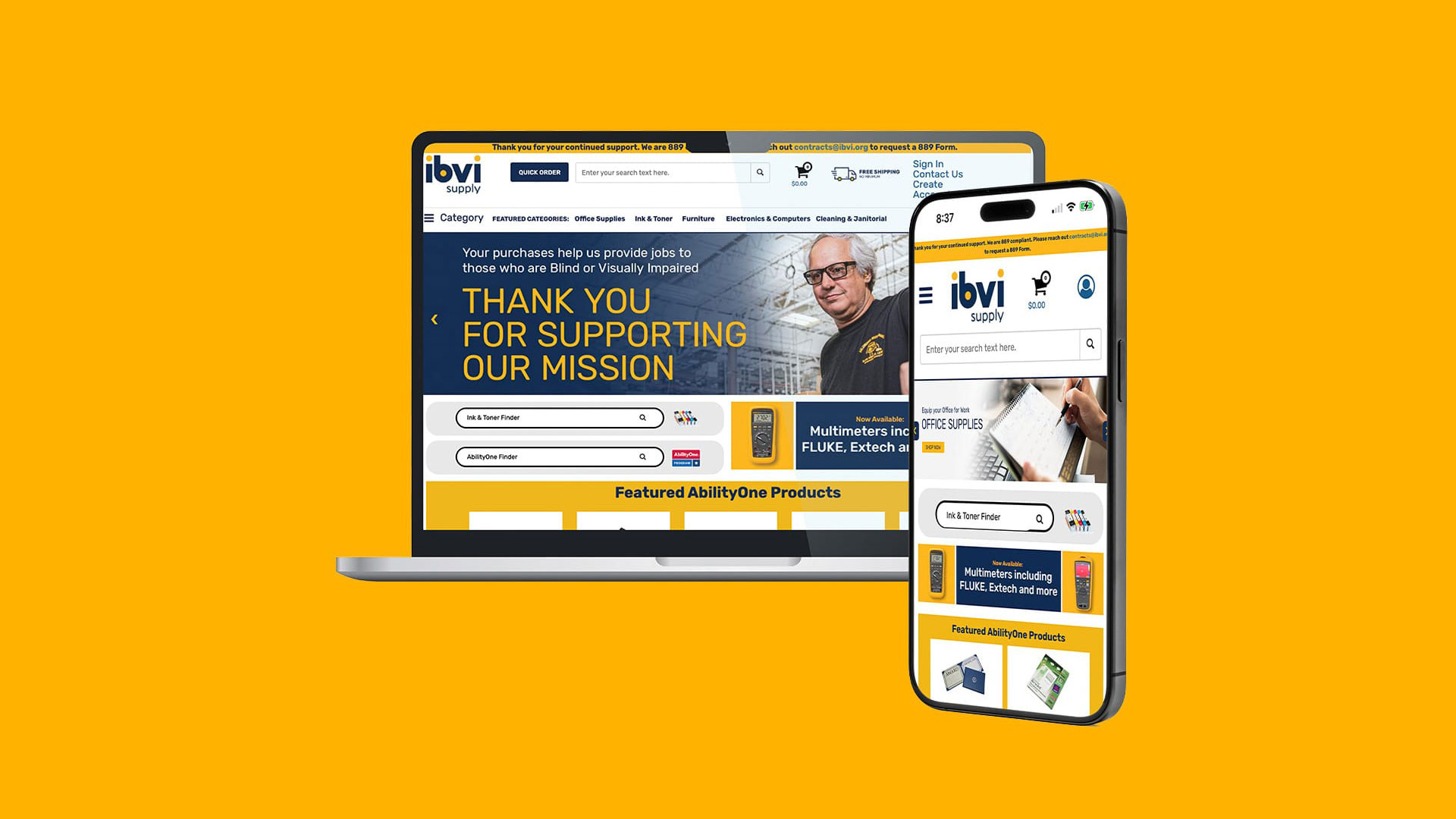“How should I act when talking to a blind person?”
While it may seem like an odd question, it’s one that’s asked quite often by sighted people who have had minimal – if any – interactions with a member of the blind community. On the flip side, we’ve also read some great blog posts by members of the blind community who have had some frustrating encounters with people who may lack awareness.
Because we are as much about providing support to the blind community as we are about building awareness within the sighted community, we decided to tackle this difficult question head-on by compiling a list of nine things every sighted person should keep in mind when engaging with the blind community.
1. Say hi!
Some people avoid saying hi to a blind colleague, friend or classmate simply because they’re concerned that they may confuse them. Worst case scenario? Even if they don’t immediately recognize who you are, they’ll still appreciate the friendly gesture!
2. Speak normally
Reminding people to speak normally may seem odd, but this is a source of frustration for many blind individuals. Many times, people will inadvertently use a saccharine tone of voice when first meeting a blind individual, while others increase their volume. As you can imagine, this can be frustrating for someone who wishes to be treated no differently from anyone else.
3. Don’t speak on their behalf
Having someone speak on your behalf is incredibly frustrating for anyone – including blind individuals. While this is always done with the best intentions, speaking on behalf of anyone that is perfectly capable of speaking for themselves can be incredibly frustrating.
4. Keep them involved
Many sighted people aren’t cognizant on how frequently we rely on visual cues when interacting with others. Francesca Marinaro of Living Blind Blog explains, “When you ask why everyone’s laughing, someone responds, ‘It’s nothing,’ or, the much more hurtful, ‘You wouldn’t get it unless you could see it’, this makes us feel shut out. It can be hard enough to keep up with the conversation without visual cues.” She adds, “The next time a blind person asks you what just happened, tell them. Allow them to be an equal participant in the social environment.”
5. Ask permission before helping
While this is done with the best of intentions, this is quite invasive and can be alarming to anyone – particularly someone with limited vision. If you think someone needs help, simply ask, “Can I help you?” Never grab their elbow without asking first! Our production manager Jeana Angelini also advises, “It also helps to describe the surroundings, which not only helps us in the moment, but in the future if we return to the same area.”
6. Accept that they probably don’t need your help
If a blind individual politely declines your offer to help them, accept their answer and don’t keep pushing your help. They know their own capabilities and limitations and will gladly ask for help if they actually need it!
7. Don’t feel like you need to walk on eggshells
You don’t need to get flustered or apologize for inadvertently referring to sight in normal, everyday context (i.e. “did you see my email?”). Francesca Marinaro says, “The implication that blind people don’t, or that they shouldn’t, use visual language is problematic because it implies that we haven’t accepted our blindness to the point that we can’t acknowledge that we live in a visual world.”
8. Be mindful of guide dog etiquette
For many of us, our first instinct upon seeing a cute dog is to run up and pet it. Unfortunately, doing so to an on-duty guide dog can distract them from the job of keeping their owner safe. Similarly, it’s also incredibly important to never move someone’s cane without their knowledge.
9. Remember that blindness is not a personality trait
It’s important to always remember that blindness is a physical attribute, not a personality trait. Blindness does not define who someone is, what their personality is like, or what they’re capable of. Robert M. Hensel said it best: “Know me for my abilities, not my disability.”
Of course, all of the aforementioned bits of advice can be summed up into one single, simple tip: You should treat members of the blind community no differently than anyone else.


